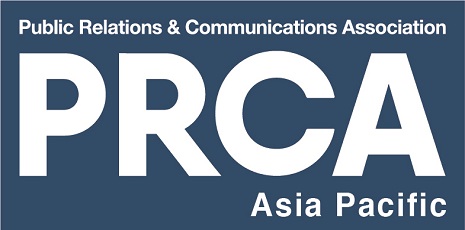The COVID-19 crisis has had a profound impact on public relations professionals across the world. Despite the ongoing uncertainty, communications are playing an essential role connecting stakeholders and helping organisations to make sense of their new environments. Messaging and communication have never been more critical to business.
This exclusive Q&A series spotlights the communications professionals behind the organisations working the COVID-19 crisis.
In this week’s Q+A, Lars Voedisch MPRCA, Managing Director, PRecious Communications share the impact the global pandemic has made on the company, the clients and the employees.
How has the COVID-19 crisis affected you and your organisation?
At PRecious, we are still trying to find ways to get better at this. We have been using the usual mix of video calls, messaging apps, emails and some collaboration tools – and there seem to be waves of overdoing each of them at times. After an initial dip in productivity, we have found our balance now. Our leadership understands the mental and emotional pressure the situation has levied on everyone, and we try to address it explicitly.
In the end, it is all due to our fantastic staff adjusting to this situation – everyone slightly differently from another. For some it’s the daily workout routine that gets them through the week, others have picked up cooking, doing regular video chats with their families abroad or merely indulging in those books or TV dramas that were on their to-do lists. On a more personal note, one of the things we miss the most is having a light-hearted, and often unplanned chat with your colleagues at the end of the day over a drink.
We have started working on some exciting projects across our client practices to challenge ourselves on how to best engage with audiences in a virtual and yet genuine way.
How should businesses communicate with stakeholders during the current crisis?
Businesses are probably spending every spare moment thinking about how to adapt and stay ahead in a rapidly changing and unpredictable environment. We get it, as we are in the same situation. As companies are looking at changing the way they operate or even moving to different operating models, for communicators, this means to adjust their strategies to meet these new and evolving objectives and prepare for the “next normal”.
Therefore we believe that the economic and health crisis triggered by COVID-19 presents an opportunity to lead the charge by questioning their marketing strategies and setting a new course. Stakeholder trust and engagement becomes an even more critical task, which means we have to collaborate and identify different ways to get your messages to them.
What are the key things to bear in mind?
For communicators, marketers and business leaders, as with every crisis, it presents an opportunity to evaluate their content, marketing and business strategies. Stakeholder loyalty and engagement remains an always-on task, which means we have to collaborate and identify more creative ways to get your messages to them.
When it comes to public relations, there is no change in tried and tested formats such as press releases, email interviews, newsjacking, targeted pitching. However, we will need to get creative and adjust some of our PR activities to meet our audiences not only technically with regards to the platforms they use, but more so emotionally to connect. In the past weeks a lot of brand campaigns were about assurance and slowly we see brands getting a bit more daring as the new world out there takes shape.
How can organisations safeguard their reputation during this period?
As the storm calms down, businesses will soon engage customers and stakeholders in the post-lockdown world – whatever that will look like. One thing is for sure, though, it will be full of caution and continued uncertainties. As things pick up, careful consideration needs to be placed on the gradual resumption of operations and marketing activities. Consumers, partners and employees are in front of their connected devices all the time now. Brands need to be visible and relevant in this “new normal”, and so communicators need to prioritise budgets around awareness and discoverability online more than ever before.
Times like these are a potent reminder to focus on why your brand matters for your stakeholders. And though the tactics might frequently change to adapt to circumstances, the overall strategy and messaging should not vary much. They need to think about how to keep content informative, aspirational and engaging. They can build a community by promoting case studies, real-life experiences and the positive efforts their business is taking.
Do you have any tips on how to protect and promote mental wellbeing amongst staff at this time?
Especially during these times, PRecious has become even tighter. Our team meetings used to be fortnightly, but now they are scheduled every week. Our Indonesian, Malaysian, and Thai colleagues have also been joining our calls – a small silver lining to this cloud.
Every Friday we celebrate the weekend differently, be it a happy hour to have a drink and play games together or a pub quiz night which involved Pictionary and Fibbage! We have also been doing weekly learning sessions as part of our all-hands-on-deck calls.
The general mood around the company is one of positive sincerity. We openly speak about the situation, what we know and what remains uncertain. Therefore we try to celebrate even the small wins more than ever to remind us of the things we can control.
Do you have any thoughts on how organisations ought to communicate with employees during the present crisis?
Unlike traditional advertising, which is often a one-way dialogue between a brand and its stakeholders, including employees, PR is built around creating and nurturing two-way relationships. We work with many hospitality and tourism clients, and our recommendation to all types of businesses is that it is more important than ever to keep communications channels open and focus on effectively sharing your message with employees, customers and other stakeholders. It is essential to address genuine concerns instead of trend jacking or fear-mongering.
We can certainly learn from the Singapore Government on consistently sharing accurate, timely and relevant updates on the current health and economic situation. Businesses need to ensure that they share updates with their clients and employees using all available channels, and ensure that they only refer to official and trusted sources. Customers have the right to go on with their lives. For brands, this means they need to be sensible about acknowledging the situation but not stop with their business strategies.
Can you share any examples of organisations delivering positive community-led or social campaigns over the past couple of months?
It is not about a specific brand, but I was really touched by the many different global campaigns celebrating the healthcare workers and other essential professions, from Italian policemen singing to people in lockdown to food or hotel stay donations or whole nations clapping and cheering for their heroes from their windows and balconies. These signs of togetherness and solidarity were good in reminding people that they were all in this together.
In what ways (if any) will this crisis impact the way communications professionals work in the long-term?
We find many organisations investing in leadership training and crisis communications workshop during this period. Others are upping the ante with online media training and investing in change management – especially fine-tuning their internal and external stakeholder communications. And after weeks of forced lockdowns, it would be very difficult for agency leaders to turn around and say work-from-home didn’t work at all after a whole industry just did that! The other thing is a stronger focus on mental wellbeing for staff; a topic that was pretty much neglected for a profession that frequently is seen as one of the more stressful ones.
If you could share any advice with yourself before this crisis began, what would it be?
Don’t be so hard on yourself when you don’t have all the answers. Be open about it and focus on those things that you can control and double down on them. Make sure you find people who are in similar situations as only they will understand how you feel.
*******


